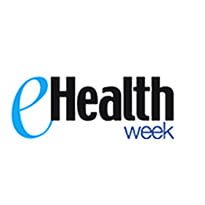Adoption of electronic records has reached a tipping point amongst doctors, but clinicians must do more to respond to digital patients, an international survey of health IT trends suggests.
The Accenture survey of 3,700 clinicians in eight countries including the UK, USA and Spain, found that 90% reported using some form of electronic record and an average of four different clinical functionalities.
“The stand out finding is that the era of a digitally connected doc is here,” Dr Pat Power, Accenture health lead in Ireland, told delegates at eHealth Week in Dublin today.
Power added that the importance of electronic records was now recognised by the overwhelming majority of doctors.
“Some 80% say it’s integral to supporting better patient care, and 74% for reduction in medication errors.”
However, the survey found that doctors were using only a relatively small number of tools and were lagging behind their patients in use of social and mobile tools.
“Doctors are not yet using digital technologies to interact with their patients or with clinicians in other organisations. Only 10% of doctors communicate routinely with patients and only 22% communicate with clinicians in other organisations.”
Power said that the annual survey showed that countries like USA, Spain and Singapore were taking the lead in health IT adoption and delivering benefits to patients.
Madrid had gone live with the ‘one citizen one record’ programme – integrating 35 hospitals and 500 primary care centres
The Basque region of Spain had a strategy to drive down costs and deliver better outcomes for 2.3m chronically ill patients, including a 24/7 patient support centre for diet, medical advice and nutrition.
Dr Jesus Maria Fernadez Diaz, head of IT projects for the Basque health system, said that 20% of primary care encounters were done now over the phone.
Basque health authorities had taken a crucial early decision to reimburse doctors for calls and online consultations.
He said the introduction of a patient support centre had resulted in reduced cost of treatment and reduced adverse events, but added that technology had to support patients rather than overwhelm them.
“You have to adopt technology very smartly as these patients are very old and with limited ability to use new technologies.”
Dr Sebastian Krolop, head of Accenture’s Germany health practice, stressed the need for usable solutions.
“If you talk to doctors about health IT you can see the pain in their face. It has to be a real solution, pure, simple and efficient,” he said.

